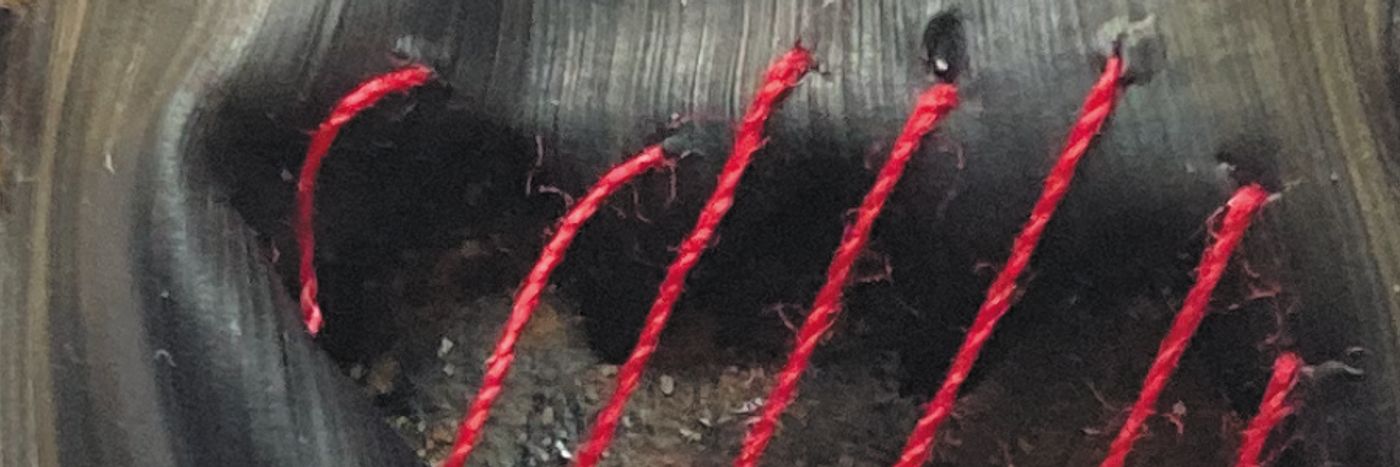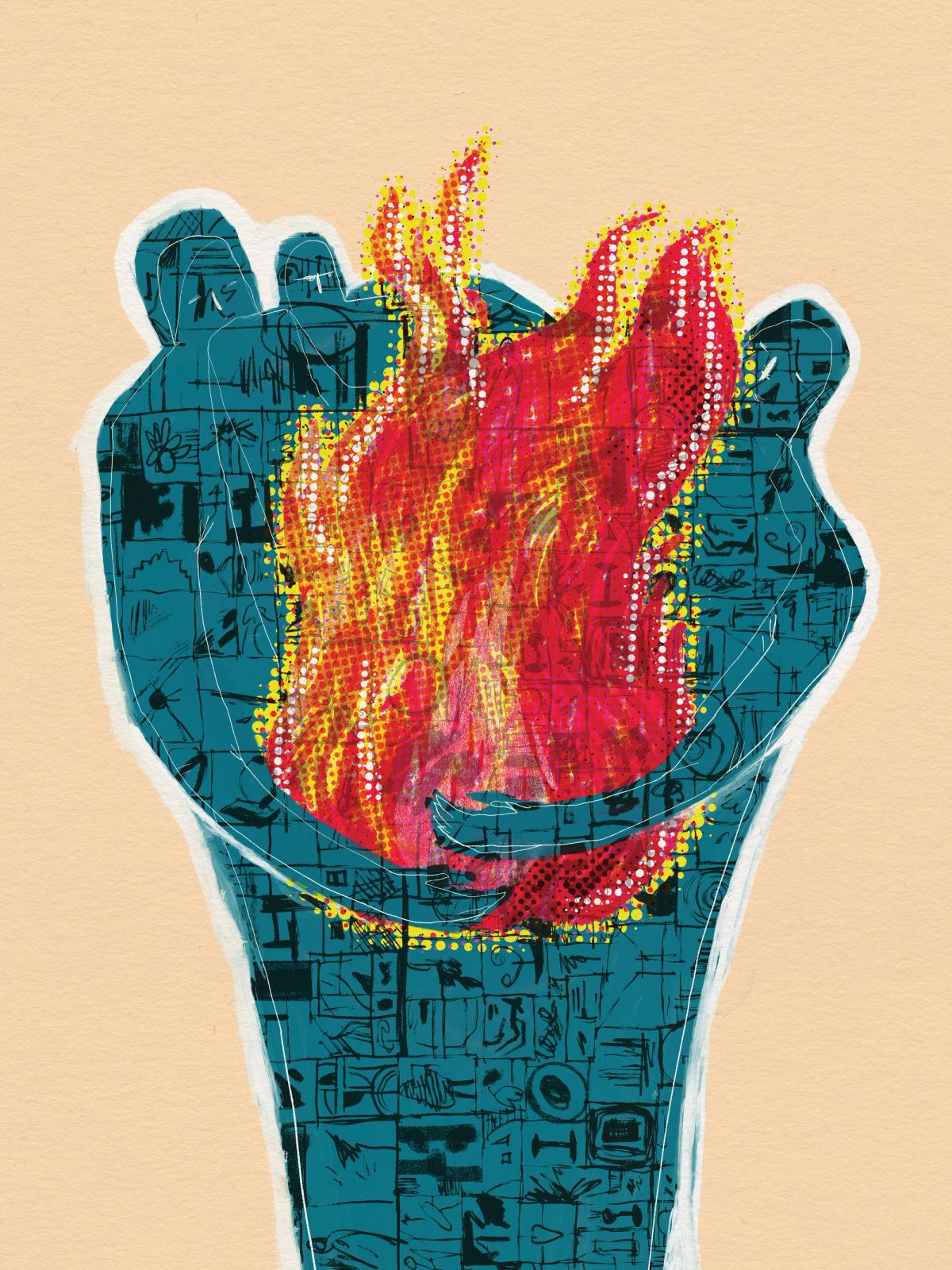Essays
Threads followed and obsessions engaged. The charting of the labyrinth.

Lia Purpura, Skate’s Egg Case (detail), featured in AGNI 102
Featured
The Invisible Belt
Essay by Purple Saxifrage
She always came to our house as the New Year approached. Alone—she never brought her daughters with her. She would hand my mother an envelope stuffed with cash, so that my mother could buy new clothes for my sisters and me, make us look decent. Every first day of the year, we went to their house. Sh...
War Diary
Essay by Nahil Mohana • Translated from the Arabic by Respond Crisis Translation
Day One – Saturday, October 7, 2023
Today I woke up to the sound of successive raids in the skies above Gaza. They were terrifying sounds, especially for those of us who live in the northern region of the Strip, traditionally the most dangerous area to live. Beyond Beit Lahia, Beit Hanoun, and the ...
Behold and Forbid Them Not: Notes of an Adoptee
Essay by Marci Calabretta Cancio-Bello
“Open your eyes.” Christmas, 1991. My adoptive mother fiddled with the camera and tripod while I swiped uselessly at my bangs and tried not to blink. She straightened and glared at me. “Open your eyes. No, not like that. Look natural.” I didn’t tell her my eyes were already open.
~
As a transracia...
On Sticks, Straws, and Lanterns: Reading Radwa Ashour in an Egyptian Prison
Essay by Abdelrahman ElGendy
I stood before the cell’s heater clutching the shambara. I enjoyed slicing things with it, the initial puncture followed by the glide into and through created clean symmetrical lines, much like it did to the top of the empty juice carton I was cutting. The shambara we used in Tora Maximum Security P...
Winter
Essay by Wiam El-Tamami
The people who have a first-hand understanding of authoritarianism and the people who cherish democratic freedoms most are people who have a history of being on the receiving end of political violence. There are many people in Germany today with that background.
—Emily Dische-Becker, in conversatio...
All Things Considered
Essay by Rae Katz
I worked in business for ten years, and for part of it, I did sales. I did sales like a rat. I did sales like a slime worm begging for trash food. I was meek and embarrassed and acutely aware of the shittiness of me, taking up time in that other person’s day, trying to sell them something I wasn’t a...

Blog
Dispatches from Ukraine
AGNI was founded in 1972 by a Ukrainian-American writer and a group of his fellow writers at Antioch College. During Askold Melnyczuk’s thirty years at the helm, he infused the magazine with an abiding commitment to the work of Ukrainian writers and translators. In response to the Russian invasion—and with Askold’s coordinating help—we published twenty-nine Ukrainian dispatches as we received them.
From the Archive
Time Has a Color
Essay by Jodi Daynard
Nuclear Denial
Essay by Philip Berrigan
Bi Bi Hua
Essay by M. Elaine Mar
I accepted the folder politely but had no intention of spending what might be my final hours reading its contents. I was thinking, so this “literature” will tell me what goes on in the heart? As if I didn’t know!
